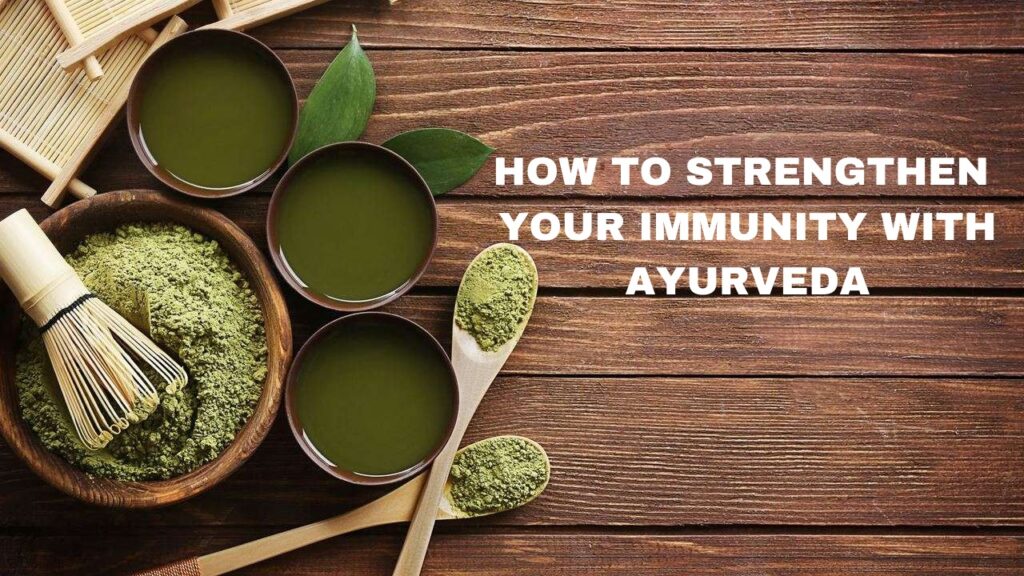In a world where health is increasingly becoming a priority, immunity has taken center stage. Amid various health systems and solutions, Ayurveda has stood the test of time, offering holistic approaches to strengthen the immune system. Ayurveda, an ancient Indian medical science, delves into the natural ways to boost immunity through dietary habits, lifestyle practices, and herbal remedies. Among the potent herbs are Ashwagandha, Amla, and Turmeric, known for their immune-boosting properties.
The Importance of Immunity in Ayurveda
In Ayurveda, immunity is referred to as “Ojas,” which is considered the essence of all bodily tissues and a determinant of overall vitality. Ojas is crucial in maintaining physical, mental, and emotional well-being. An individual with strong Ojas is said to be more resistant to disease, stress, and fatigue.
Ayurvedic texts like the Charaka Samhita and Ashtanga Hridaya emphasize a balanced diet, daily routines (Dinacharya), seasonal routines (Ritucharya), and mental health to nurture and protect Ojas.
Market Trends: Rising Demand for Ayurveda in Immunity-Boosting
Post the COVID-19 pandemic, the market for immune-boosting products, particularly those rooted in Ayurveda, has surged. According to a report by IMARC Group, the Indian Ayurveda market was valued at INR 300 billion (USD 4 billion) in 2021, with projections of reaching INR 1,536 billion (USD 20 billion) by 2027, growing at a CAGR of 32.1%. Immunity-boosting herbs like Ashwagandha, Amla, and Turmeric have been at the forefront of this surge, with consumers turning to natural remedies for health maintenance.
Globally, Ayurvedic immunity products are gaining popularity, particularly in markets like the U.S. and Europe. The global market for Ayurvedic products is projected to reach USD 14.9 billion by 2028, driven largely by demand for herbal supplements that support immune health.
The Science Behind Ayurveda’s Immune-Boosting Herbs
- Ashwagandha (Withania somnifera)
Ashwagandha, commonly referred to as Indian ginseng, is a well-known adaptogen that enhances the body’s resilience to stress, one of the major causes of weakened immunity. Research has shown that Ashwagandha stimulates immune cells like macrophages and increases the body’s production of antibodies. This not only helps in fighting infections but also enhances overall immunity.
- Market Insight: Ashwagandha supplements are in high demand globally, with the U.S. market expected to grow at a CAGR of 8.2% from 2021 to 2028, according to Grand View Research. Consumers are turning to Ashwagandha for both stress management and immune support.
- Amla (Phyllanthus emblica)
Amla, or Indian gooseberry, is considered a powerhouse of vitamin C. This superfruit contains up to 20 times more vitamin C than oranges, playing a crucial role in improving immune function. Amla enhances the function of natural killer (NK) cells and macrophages, the body’s frontline defense against infections.
Regular consumption of Amla helps in improving resistance to viral and bacterial infections. In Ayurveda, Amla is revered for its Rasayana (rejuvenating) properties, which support longevity and improve Ojas, thereby enhancing immunity.
- Market Insight: Amla-based supplements and juices are gaining traction, particularly in India and Southeast Asia. The global Amla extract market was valued at USD 35.39 million in 2020 and is expected to grow at a CAGR of 4.9% from 2021 to 2028, according to a report by Transparency Market Research.
- Turmeric (Curcuma longa)
Turmeric, and its active component curcumin, have been extensively studied for their anti-inflammatory and immune-modulating properties. Curcumin enhances the immune response by promoting the activity of various immune cells, including T-cells, B-cells, and natural killer cells. Additionally, turmeric’s anti-inflammatory effects help mitigate chronic inflammation, which can weaken the immune system over time.
In Ayurveda, turmeric is often prescribed in conjunction with other herbs like black pepper to enhance absorption and efficacy. It is also used in decoctions (Kadhas), which became especially popular during the COVID-19 pandemic as preventive health measures.
- Market Insight: The global turmeric supplement market is expected to witness a CAGR of 8.1% from 2022 to 2027, with rising consumer interest in natural immunity boosters. India remains the largest producer of turmeric, and exports are on the rise, especially to Western countries.
Ayurvedic Diet and Lifestyle for Immunity
Ayurveda advocates a balanced diet tailored to one’s constitution (Prakriti) and the current season to keep the immune system robust. A diet rich in fresh, organic fruits and vegetables, whole grains, and immune-boosting herbs like ginger, garlic, and turmeric is essential.
- Seasonal Routines (Ritucharya): Ayurveda prescribes different regimens for each season to help the body adapt and maintain balance. For instance, in winter, it’s recommended to eat warming foods and herbs like ginger, while summer calls for cooling herbs like coriander and mint.
- Lifestyle Practices: Regular yoga and meditation play a key role in managing stress, a major factor in immune suppression. Pranayama (breathing exercises) and daily self-massage (Abhyanga) with warm oil are also recommended to enhance circulation and boost immunity.
Ayurveda’s Holistic Approach to Immunity
Ayurveda offers a time-tested, natural way to enhance immunity by focusing on the balance of body, mind, and spirit. The integration of immune-boosting herbs like Ashwagandha, Amla, and Turmeric into daily routines, along with a balanced diet and mindful lifestyle, provides a comprehensive strategy for maintaining health.
With growing consumer interest in natural and holistic health solutions, the market for Ayurvedic immunity products is poised for exponential growth. Whether you’re looking to support your immune system during flu season or maintain overall wellness, Ayurveda’s ancient wisdom continues to offer powerful tools for modern health challenges.









